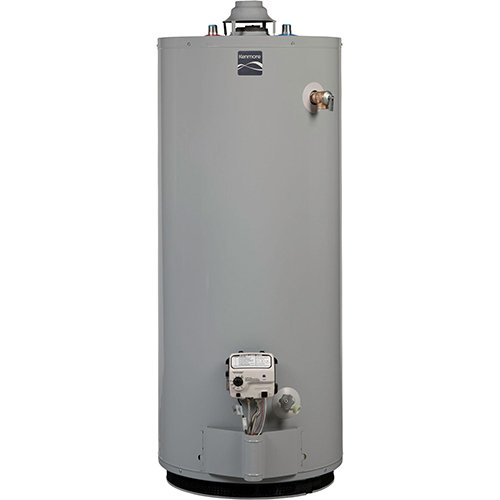Heating and cooling emergencies happen when you least expect them. The experts at C.B. Lucas will assess and handle any emergency HVAC or plumbing issues in your home or business. We have the necessary skills and tools to fix your system so you can safely use it once again. Call C.B. Lucas to get 24/7 emergency HVAC & plumbing services in Northern Virginia and the surrounding areas.
3 Ways to Keep Your Water Heater From Causing Serious Trouble
Water heaters can be big troublemakers. News reports across the country document the mischief and mayhem caused by the deceptively humble water heater. Recently, in downtown Syracuse, New York, someone reported an odd silver object randomly lurking outside a parking garage. Only after the water heater was blown up by a bomb squad did the police and public realize that the “suspicious package” they feared was only a simple appliance.
In Mount Vernon, Missouri, a local school was flooded when a bad water heater failed catastrophically and dumped water in the building for more than a day. In Chicago, Illinois, an overheating power vent on a water heater caused a small basement fire. In South Strand, South Carolina, a building was evacuated and a HAZMAT team called out because of a foul smell emitted by a water heater leak.
Bad water heaters must be tamed. Listed below are three ways to make sure your water heater doesn’t go rogue on you and cause damage to people or property.
Check Your Water Heater’s Age Now
Unlike human troublemakers, bad water heaters tend to be more elderly than juvenile. An old water heater will begin to develop all sorts of problems, from leaks to clogs to corrosion. Newer water heaters are not only more reliable, they’re also more efficient, safe and energy-conserving than older models.
If you have a water heater that’s approaching eight to 15 years of use, that appliance has reached its limits in performance. Unless you stay on top of the repairs the appliance needs, you can expect your water heater to experience frequent problems.
A tankless heater has a slightly longer lifespan. Expect to enjoy around 20 years from one of these appliances if you operate it according to the manufacturer’s instructions.
Know the Warning Signs of a Troubled Water Heater
Water heaters give off signs that they’re having issues. One sign is a rumbling noise that can be heard coming from the appliance. This sound is caused by sediment buildup on the floor of the tank. Sediment collects in the tank from microscopic material in the water itself and from bits of flaking internal corrosion.
Another sign of potential water heater trouble is water with a strange color or smell. Rust-colored water can indicate that the inside of your tank is weakened structurally by corrosion. Leaks can develop from the corrosion along with the weird brownish water.
Egg-smelling or black water is caused by a chemical reaction of sulfites and bacteria in the tank. This condition may happen when you have your water heater turned off for long periods of time. Naturally-occurring bacteria actually “eat” the naturally-occurring sulfites in the water to create the stinky hydrogen sulfide you smell. Regularly replacing the anode rods in the tank, flushing the system and adding filtration helps if you have water that’s prone to this problem.
Leaks and hissing noises around the water heater must be inspected. Some leaks are due to poor connections, pipes or fittings. These leaks may be fixable. Leaks from the water heater’s body are not repairable.
Have Your Water Heater Professionally Serviced
If you don’t have the skills or knowledge to work on your own water heater, call in the professionals to inspect and maintain your appliance for you. Before working on the water heater yourself, remember that you must first disconnect any power to the unit, shut off water sources and close off any gas or propane lines to the appliance. It’s best to let a professional handle these tasks if you haven’t maintained your water heater previously.
An added bonus when calling in the experts is that they can alert you to problems before you have a disaster on your hands. The average homeowner may not know the trouble signs to look for in an aging water heater. The water heater pros knows exactly how to spot and fix potential problems.
Some of the routine water heater maintenance chores you should have done once or twice a year include:
- Drain and flush the tank
- Check and clear area around tank
- Check pressure relief valve
- Inspect elements for breaks
- Inspect gas thermocouple
- Check gas flue for proper exhaust
- Ensure adequate ventilation
- Tighten all fittings and connections
- Inspect all pipes connected to unit
As mentioned above, the anode rods inside your water heater can cause problems. The anode rods collect rust and corrosion, and if you don’t have them changed out on a regular schedule, corrosion and rust will build up on the inside of the water heater. This will result in an increased risk of leaks, flooding and more repair bills than the expense of a simple appliance replacement.
C.B. Lucas Heating & Air Conditioning is happy to schedule your water heater checkups and repairs. When it’s time for a new unit, they offer top-of-the-line water heaters and perform experienced, skilled installations to get you back in hot water as quickly as possible.
A garbage disposal is a convenient and eco-friendly way to handle food waste in your Northern Virginia kitchen. Placing food scraps in the garbage can...


